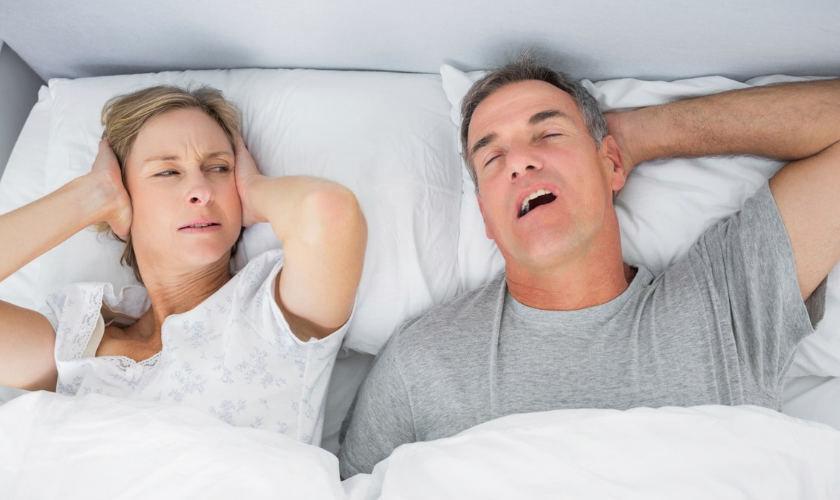
April 2, 2024
Sleep Apnea
For many of us, a trip to the dentist conjures images of uncomfortable cleanings and nervous drilling. But did you know that your dentist can play a vital role in improving your overall health, including your sleep and breathing? It’s true!
This blog will delve into the surprising connection between oral health and sleep disorders and how your dentist can help you achieve a good night’s rest.
The Silent Struggles: Sleep Disorders and Their Impact
Sleep isn’t a luxury – it’s a biological necessity. Just like needing air and water, sufficient sleep is fundamental for our physical and mental well-being. It’s during sleep that our bodies enter a state of repair and rejuvenation.
Muscles rebuild, tissues mend, and the brain consolidates memories and processes information we encounter throughout the day. However, millions of people worldwide struggle with silent sleep disorders, leading to a cascade of negative consequences that ripple far beyond just feeling tired.
Fragmented Sleep and the Daytime Domino Effect
One of the major hallmarks of sleep disorders is fragmented sleep. This means sleep is broken up into short, restless periods, preventing individuals from reaching the deep sleep stages crucial for restoration. The result? A domino effect throughout the day:
- Daytime Fatigue: Chronic sleep deprivation leaves you feeling constantly drained, making even simple tasks feel like a battle.
- Cognitive Decline: Concentration, memory, and clear thinking all suffer when sleep is disrupted. Decision-making falters, and reaction times slow.
- Emotional Toll: Sleep disorders are often linked to increased irritability, anxiety, and even depression.
- Diminished Immunity: Sleep strengthens the immune system, but chronic sleep problems can leave you more susceptible to illness.
The Hidden Health Risks of Sleep Disorders
While the immediate impacts of sleep disorders are noticeable, the long-term consequences can be severe. Here’s a glimpse into the hidden health risks:
- Chronic Diseases: Research suggests a link between sleep disorders and an increased risk of developing chronic health conditions like heart disease, stroke, diabetes, and even some cancers.
- Weight Management: Sleep disturbances can disrupt hormones that regulate appetite, potentially leading to weight gain or difficulty losing weight.
- Safety Concerns: Drowsy driving due to sleep deprivation is a serious threat, impacting not only the driver but also everyone on the road.
Common Culprits
- Sleep Apnea: This condition causes pauses in breathing during sleep. As a result, it leads to fragmented sleep, oxygen deprivation, and a multitude of health risks.
- Insomnia: Many struggle to fall or stay asleep, and constant worry about sleep can become a self-fulfilling prophecy.
- Restless Legs Syndrome (RLS): This condition is characterized by an irresistible urge to move the legs, often at night, making it difficult to fall asleep or stay comfortable.
- Circadian Rhythm Disorders: Our internal clock, regulated by light exposure, can become disrupted, leading to difficulty falling asleep at night or waking up too early.
The Unexpected Hero: Your Dentist and Sleep Health
Here’s how your dentist can help you improve your sleep and breathing:
Diagnosing Sleep Apnea
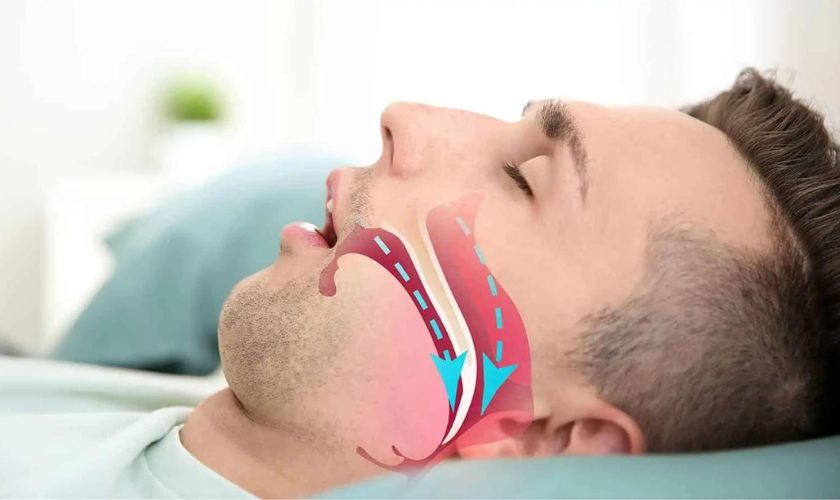
Dentists are often the first line of defense in identifying sleep apnea. During your regular checkup, your dentist will be on the lookout for physical signs that might indicate sleep apnea, such as:
- Scalloped tongue: The constant pressure on the tongue during sleep apnea episodes can cause scalloping or indentations on the edges.
- Enlarged tonsils or uvula: These tissues can contribute to airway obstruction during sleep.
- Worn or fractured teeth: Grinding teeth (bruxism) is a common symptom of sleep apnea.
Oral Appliance Therapy
For mild to moderate cases of obstructive sleep apnea, dentists can provide custom-made oral appliances. These devices work by gently repositioning your jaw and tongue in a way that keeps your airway open throughout the night. This significantly reduces sleep apnea symptoms such as snoring and breathing pauses, leading to:
– Improved sleep quality: You’ll experience deeper, more uninterrupted sleep cycles.
– Enhanced daytime alertness: No more feeling tired and sluggish during the day.
– Increased energy levels: You’ll wake up feeling refreshed and ready to tackle the day.
Treating Bruxism: Protecting Your Teeth and Promoting Restful Sleep
Teeth grinding (bruxism) is a common sleep disorder that can cause significant jaw pain, headaches, and damage to your teeth. Dentists can offer nightguards, which are custom-made mouthpieces worn during sleep. These nightguards act as a barrier between your upper and lower teeth, preventing them from grinding together and minimizing the associated damage. By alleviating jaw pain and headaches caused by bruxism, nightguards can significantly improve your sleep quality by allowing for a more comfortable and pain-free night’s rest.
Taking Charge of Your Sleep Health
Getting a good night’s sleep is crucial for both physical and mental well-being. If you’re struggling with sleep problems, don’t despair! Here are some ways you can take charge of your sleep health and transform it:
Seek Professional Help
While dentists can be surprising resources, they can also identify sleep issues related to snoring, sleep apnea, and jaw misalignment. Don’t hesitate to discuss sleep concerns with your dentist, as they may recommend treatments like CPAP machines or mouth guards to improve your breathing and sleep quality.
Develop a Sleep Sanctuary
- Schedule for Success: Establish a consistent sleep schedule, going to bed and waking up at the same time each day, even on weekends. This regulates your body’s natural sleep-wake cycle (circadian rhythm) for easier sleep onset and awakening.
- Relaxing Rituals: Create a calming bedtime routine that signals to your body it’s time to wind down. This could include taking a warm bath, reading a book in dim light, practicing gentle yoga, or listening to soothing music. Avoid stimulating activities like watching TV or using electronic devices for at least an hour before bed.
- Bedroom Bliss: Make your bedroom a sleep haven. Ensure it’s dark by using blackout curtains or an eye mask. Block out noise with earplugs or a white noise machine. Keep the temperature cool and comfortable, ideally between 60 and 67 degrees Fahrenheit. Invest in comfortable bedding that promotes relaxation.
Optimize Your Habits
- Power Down Electronics: The blue light emitted from electronic devices like phones, laptops, and TVs suppresses melatonin production, a hormone that regulates sleep. Avoid screen time for at least an hour before bed and keep electronics out of the bedroom entirely.
- Mindful Consumption: Limit caffeine and alcohol intake, especially in the hours leading up to bedtime. Caffeine can stay in your system for several hours, while alcohol might disrupt deep sleep stages.
- Move Your Body: Regular exercise can significantly improve sleep quality. However, avoid strenuous workouts close to bedtime, as they can leave you feeling too energized to fall asleep. Opt for moderate exercise like walking, swimming, or yoga earlier in the day.
- Diet for Sleep: Avoid heavy meals and sugary snacks close to bedtime, as they can cause indigestion and disrupt sleep. Opt for a light, healthy dinner a few hours before bed.
- Sunlight Matters: Get regular exposure to natural sunlight during the day. This helps regulate your circadian rhythm and promotes better sleep at night.
Who knew a trip to the dentist could be the key to a better night’s sleep? By recognizing signs of sleep disorders and offering solutions like custom-made appliances, dentists play a surprising role in improving your breathing and sleep quality. So, if you’re struggling to rest or waking up feeling tired, don’t hesitate to talk to your dentist – they might be your sleep savior.
Recent Posts
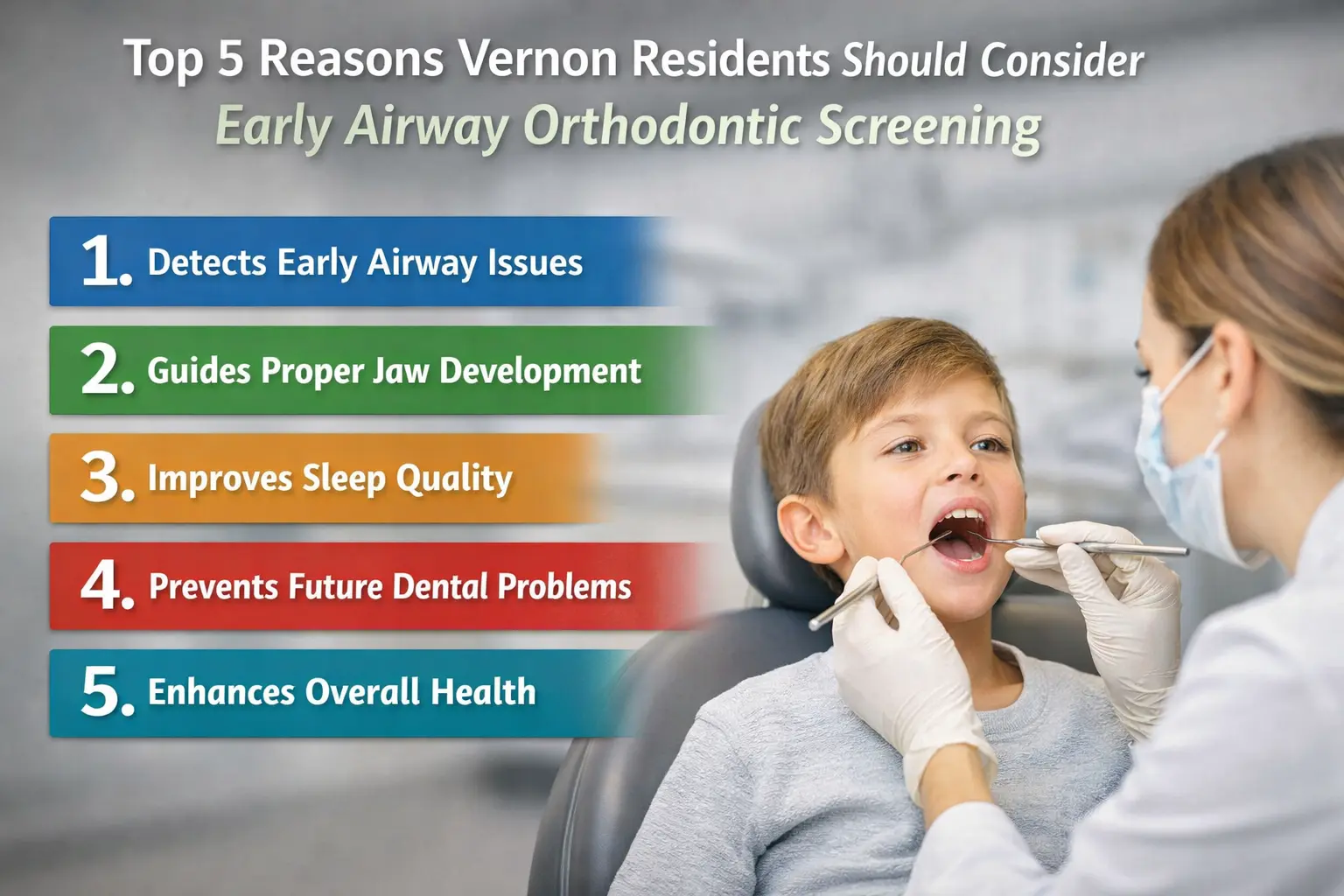
Top 5 Reasons Vernon Residents Should Consider Early Airway Orthodontic Screening
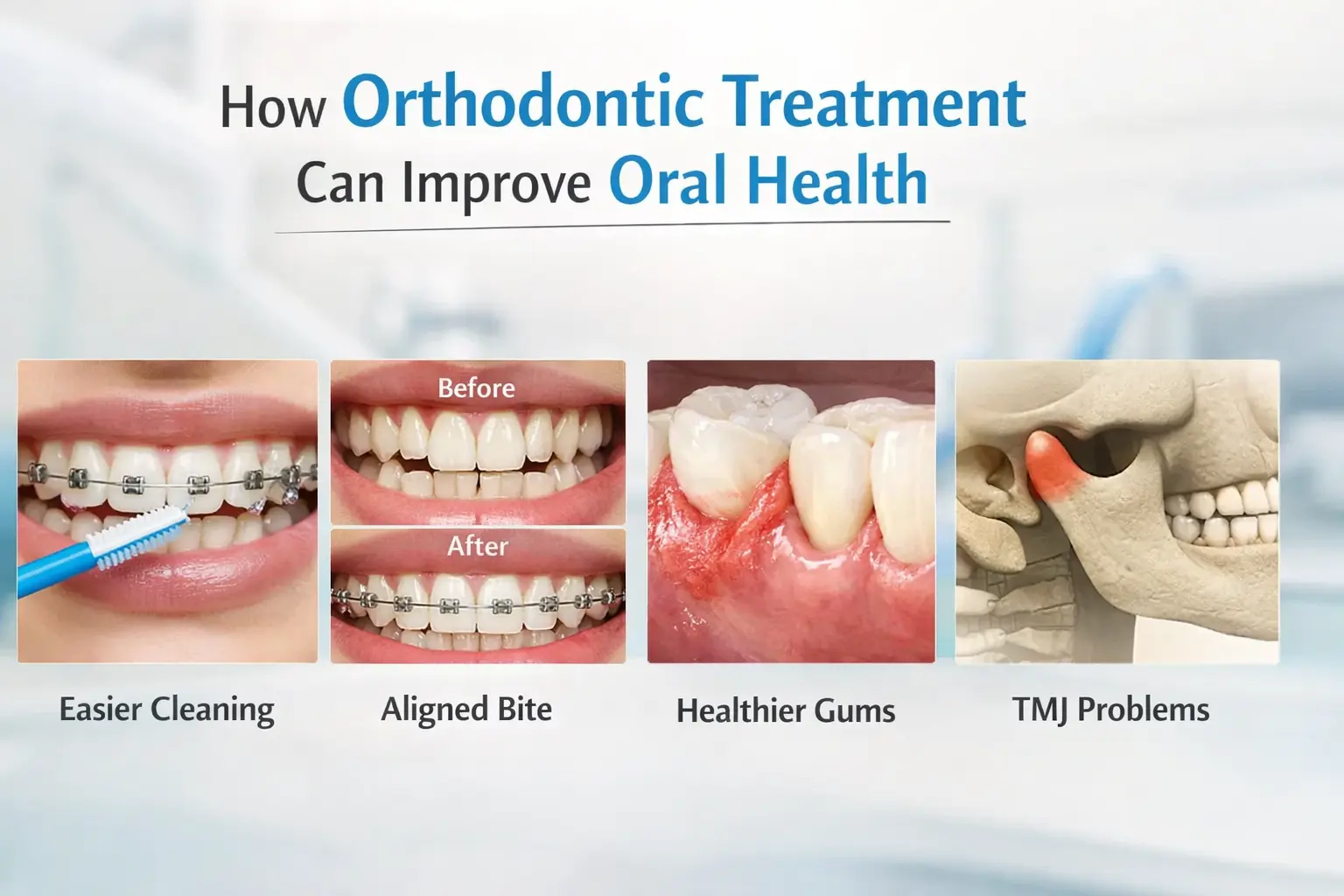
How Orthodontic Treatment Can Improve Oral Health
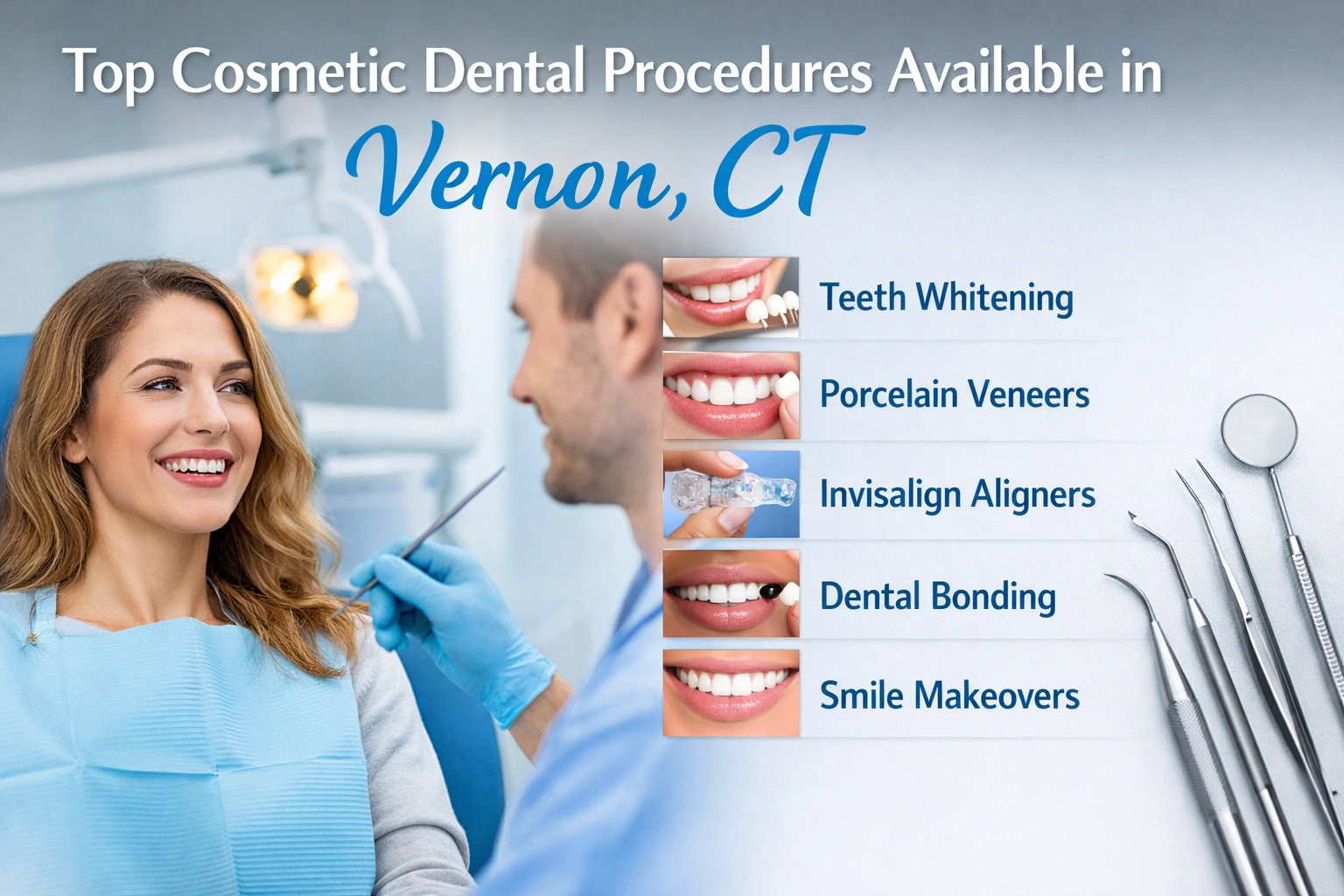
Top Cosmetic Dental Procedures Available in Vernon, CT
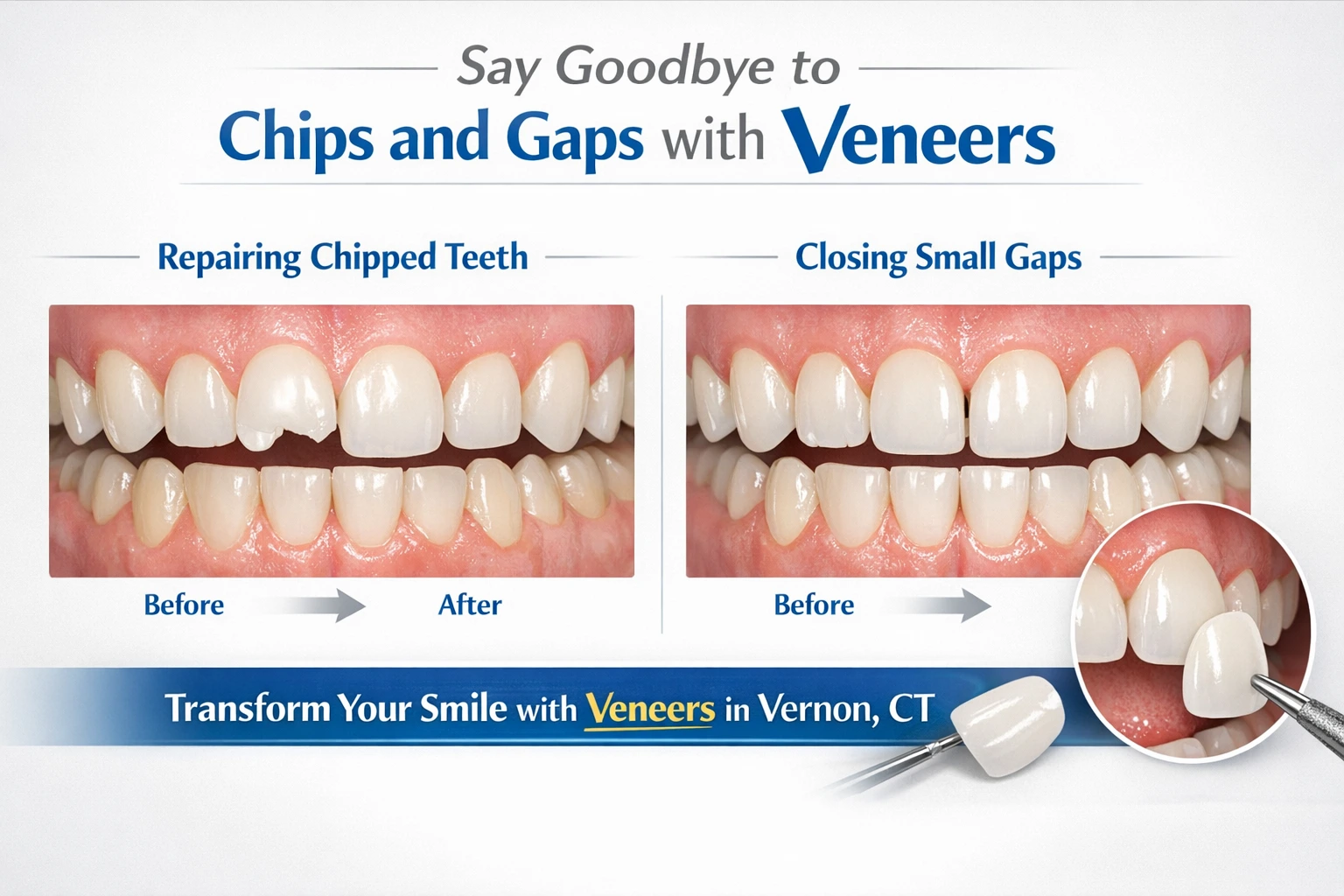
How Veneers Address Structural Imperfections Like Chips And Small Gaps

